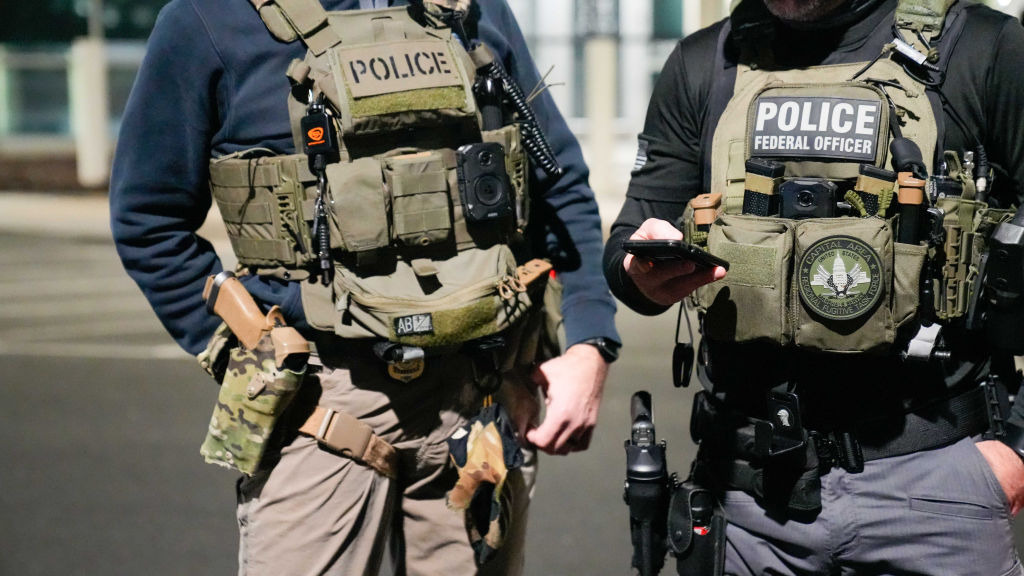Child care workers in Washington D.C. are increasingly retreating into the shadows as U.S. Immigration and Customs Enforcement (ICE) operations intensify. The crackdown, announced by former President Donald Trump in August 2023, has heightened fears among Latina child care providers, many of whom are undocumented. This has resulted in a loss of income and a deepening staffing crisis in a sector already facing challenges.
Alma, a home-based day care provider, monitors the streets from her front door, ensuring it is safe for her undocumented coworker to enter. Since the declaration of a “crime emergency” in the district, she has halted outings with the children in her care. The shift in routine has led to two children leaving her day care, as parents express concerns about the lack of outdoor activities.
The deployment of the National Guard and an increase in ICE agents in the area have contributed to a tenfold rise in arrests. According to the Multicultural Spanish Speaking Providers Association, nearly 40 percent of child care workers in D.C. are immigrants, with a significant number being undocumented. The majority are women, and many now face the dilemma of missing work or risking their safety for financial stability.
“What kind of life is this?” Alma asked. “We are not delinquents; we are here to work and support our families.” Having spent over two decades in the U.S. and a decade in child care, she is now forced to make difficult decisions to maintain her business and care for her own children.
Impact of Policy Changes on Child Care Providers
The current environment reflects broader changes in immigration policy under the Trump administration, which has sought to reduce legal protections for immigrants. This includes narrowing asylum opportunities and pausing humanitarian protections. Such shifts have pushed many workers into undocumented status, exacerbating fears among Latinx communities and creating further instability within the child care sector.
Blanca Huezo, program coordinator at the Multicultural Spanish Speaking Providers Association, highlighted the unique challenges faced by Latina providers. She noted that the child care industry has become a refuge for many seeking to build a life in the U.S. “In general, this industry offers them an opportunity for a fresh start professionally in their own language and without leaving behind their culture,” Huezo remarked.
Many providers have opted for virtual education courses to avoid campus visits, as they fear being targeted by immigration enforcement. The organization is working to connect child care workers with resources, including legal assistance and food deliveries, but demand has surged, leading to longer wait times for services.
Heightened Fear and Uncertainty
Thalia, another child care teacher, expressed the pervasive fear shared among her colleagues. “They are hunting us,” she stated, reflecting the anxiety that has taken hold of many in the community. With her own undocumented status, she has begun preparing her children for the worst-case scenario, instructing them to contact a lawyer if she is detained.
The emotional toll of living under constant threat is immense. Thalia has spent nine years in the U.S. and has earned certifications in early childhood education, yet the fear of separation from her children looms large. “If I don’t return, it’s not because I am abandoning you,” she said, illustrating the precarious situation that many undocumented workers face daily.
Despite Washington D.C.’s status as a sanctuary city, recent policy changes have eroded the sense of safety previously felt by immigrant communities. In mid-August, Mayor Muriel Bowser proposed repealing laws that limited law enforcement cooperation with immigration officials, raising concerns about potential ICE operations in child care facilities.
While there have been no reported raids in day cares as yet, the removal of protections has left many providers anxious. Child care centers were previously considered “sensitive locations,” where ICE enforcement was discouraged. Under the current administration, that directive has been rescinded, heightening fears about potential raids.
The situation in D.C. mirrors similar patterns seen in cities like Los Angeles, where ICE conducted widespread operations earlier this summer. As the environment grows increasingly hostile, organizations like the Multicultural Spanish Speaking Providers Association are striving to support workers, but the path forward remains fraught with uncertainty.
The child care sector, which relies heavily on immigrant labor, now faces a critical crossroads. The ongoing climate of fear poses significant challenges not just for workers, but also for families who depend on these essential services. As the community grapples with these pressures, the resilience of these workers continues to be tested.
